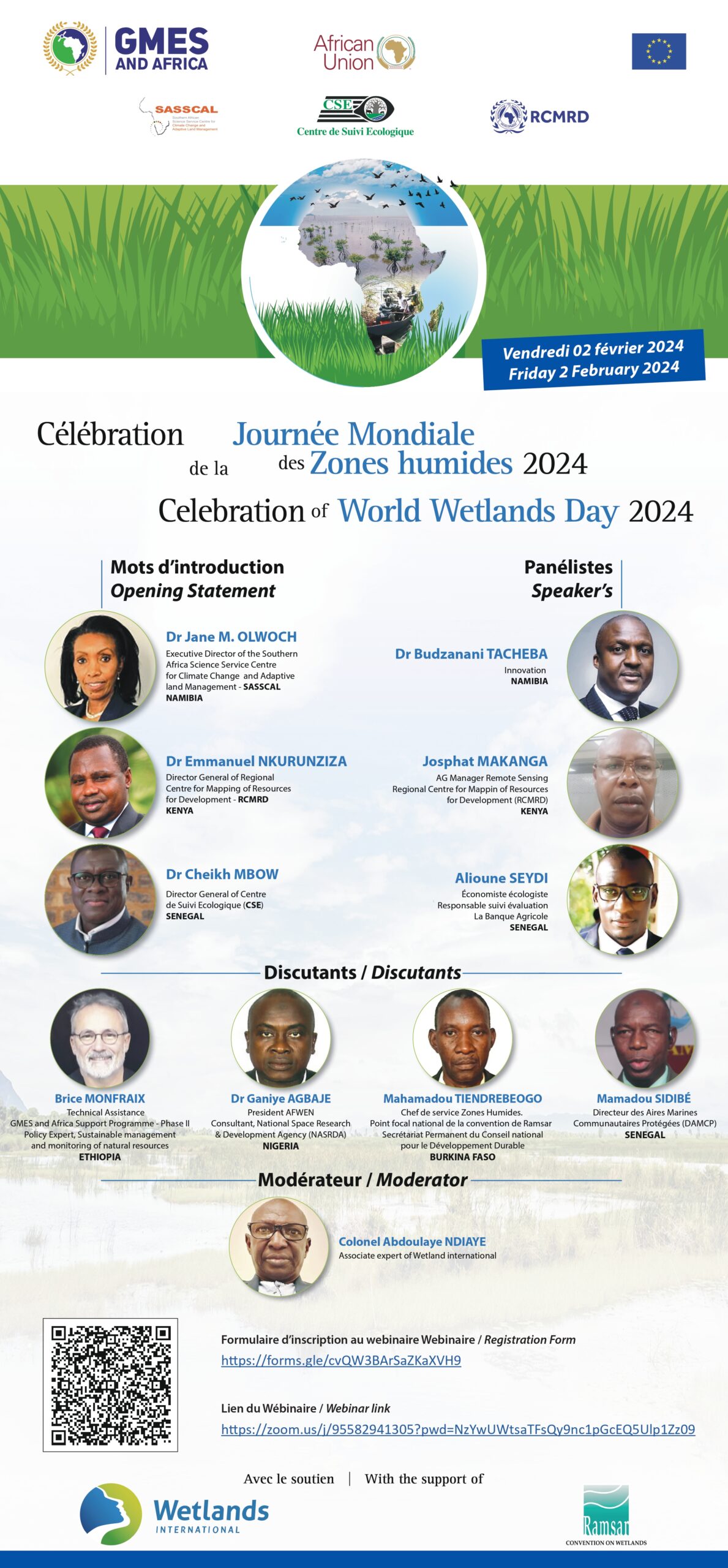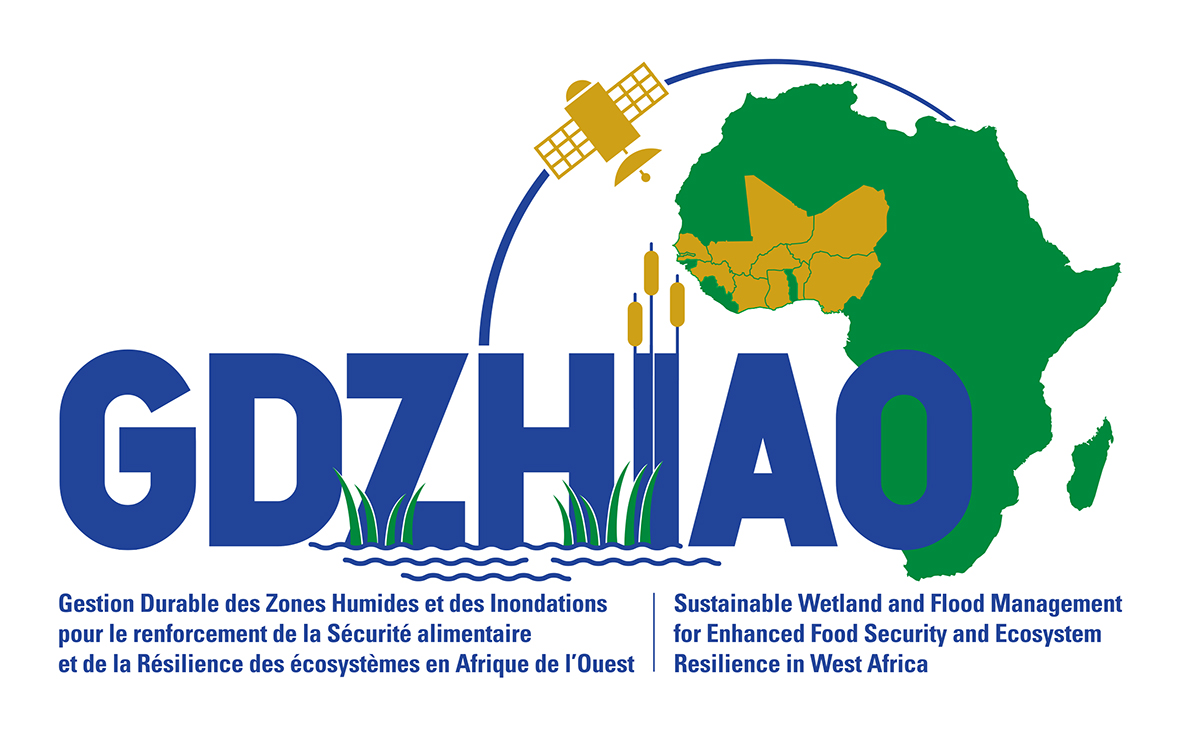
Click on this link to join the webinar :
https://zoom.us/j/95582941305?pwd=NzYwUWtsaTFsQy9nc1pGcEQ5Ulp1Zz09
Context
As providers of ecosystem services, the most fundamental of which – water and its implications for health and well-being – awareness of the scale of wetland services and the cost of their loss or degradation is relatively recent.
Proclaiming in its resolution of August 30, 2021, February 2nd as World Wetlands Day, the United Nations General Assembly reaffirmed that wetlands are vital to humanity, nature and sustainable development. Important for their resources, ecological functions and wealth of flora and fauna, natural repositories of biological diversity, once considered sterile and unhealthy environments, hotbeds of disease and havens for mosquitoes and crocodiles, they will be used, with technological progress, for irrigated agriculture, controlling floods and maintaining environmental
quality (regulation), providing communication routes and vital habitats for species of flora and fauna (support), providing nutritional resources (production), creating recreational activities (cultural and amenity services).
Providers of plant products (wood, fruit, etc.) and animal products (oysters, fish, etc.), they are recognized in the Millennium Ecosystem Assessment on Ecosystems and Human Well-Being: Wetlands and Water (Finlayson et al, 2005), as a value for humanity estimated at US$14 trillion per year and other aesthetic or cultural values often imperceptible when decisions are made, a source of widespread strong degradation of wetlands, increasing losses
of biodiversitý and pollution.
In order to contribute to socio-economic-environmental development, wetland management must be based on a better understanding of their status, quantity and spatial distribution. As few wetland sites benefit from access to high-resolution observation data, the African Union, in partnership with the European Union, via the Support Program of the Global Monitoring for Environment and Security in Africa (GMES & AFRICA) offers dedicated African institutions free access to geo-spatial technologies from Copernicus, EUMETSAT, among others.
GMES & Africa offer multiple benefits including: i) geographic coverage of vast wetlands, inaccessible or with high data collection costs; iii) availabilitý of information on a regular basis from for targeted areas; iv) the retrospective analysis of the evolution of wetland ecosystems. The use of earth observation data should improve the estimation of the economic value of wetlands, assessing these resources is essential to convince decision-makers and populations of the richness and vulnerability of this potential, whose sustainability requires rational and concerted management.
In this context, the Center de Suivi Ecologique, leader of the «GDZHIAO» Consortium, aligning itself with the main theme of World Wetlands Day, 2024 (Wetlands and human well-being), is organizing a webinar: «Contribution of Earth observation data in the knowledge and accuracy of the assessment of the economic value of wetlands».
Objectives
The overall objective of this webinar is to share with all stakeholders the benefits of using products and services derived from Earth observation data to better understand wetlands in terms of health status, quantity, spatial distribution and economic value.
Specifically, this will involve:
– Enhance understanding of the main functions and benefits of wetlands;
– Identify the opportunities offered by geospatial technologies for a better understanding of wetlands;
– Understand identify the ecological, cultural and economic importance of wetlands, as well as their monetary and non-monetary values;
– Identify means and techniques for integrating wetland functions and values into decision-making tools
Click on this link to join the webinar :
https://zoom.us/j/95582941305?pwd=NzYwUWtsaTFsQy9nc1pGcEQ5Ulp1Zz09




